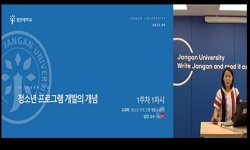Background We established the Microvascular Research Center Training Program (MRCP) to help trainee surgeons acquire and develop microsurgical skills. Medical students were recruited to undergo the MRCP to assess the effectiveness of the MRCP for trai...
http://chineseinput.net/에서 pinyin(병음)방식으로 중국어를 변환할 수 있습니다.
변환된 중국어를 복사하여 사용하시면 됩니다.
- 中文 을 입력하시려면 zhongwen을 입력하시고 space를누르시면됩니다.
- 北京 을 입력하시려면 beijing을 입력하시고 space를 누르시면 됩니다.


Evaluation of the Microvascular Research Center Training Program for Assessing Microsurgical Skills in Trainee Surgeons
한글로보기https://www.riss.kr/link?id=A101435925
- 저자
- 발행기관
- 학술지명
- 권호사항
-
발행연도
2013
-
작성언어
English
- 주제어
-
등재정보
SCOPUS,KCI등재,ESCI
-
자료형태
학술저널
- 발행기관 URL
-
수록면
214-219(6쪽)
- 제공처
-
0
상세조회 -
0
다운로드
부가정보
다국어 초록 (Multilingual Abstract)
Background We established the Microvascular Research Center Training Program (MRCP) to help trainee surgeons acquire and develop microsurgical skills. Medical students were recruited to undergo the MRCP to assess the effectiveness of the MRCP for trainee surgeons. Methods Twenty-two medical students with no prior microsurgical experience, who completed the course from 2005 to 2012, were included. The MRCP comprises 5 stages of training, each with specific passing requirements. Stages 1 and 2 involve anastomosing silicone tubes and blood vessels of chicken carcasses, respectively, within 20 minutes. Stage 3 involves anastomosing the femoral artery and vein of live rats with a 1-day patency rate of >80%. Stage 4 requires replantation of free superficial inferior epigastric artery flaps in rats with a 7-day success rate of >80%. Stage 5 involves successful completion of one case of rat replantation/transplantation. We calculated the passing rate for each stage and recorded the number of anastomoses required to pass stages 3 and 4. Results The passing rates were 100% (22/22) for stages 1 and 2, 86.4% (19/22) for stage 3, 59.1% (13/22) for stage 4, and 55.0% (11/20) for stage 5. The number of anastomoses performed was $17.2{\pm}12.2$ in stage 3 and $11.3{\pm}8.1$ in stage 4. Conclusions Majority of the medical students who undertook the MRCP acquired basic microsurgical skills. Thus, we conclude that the MRCP is an effective microsurgery training program for trainee surgeons.
동일학술지(권/호) 다른 논문
-
The Need for a Reviewer to Play Devil's Advocate
- Korean Society of Plastic and Reconstructive Surgeons
- Hwang, Kun
- 2013
- SCOPUS,KCI등재,ESCI
-
An Algorithmic Approach to Total Breast Reconstruction with Free Tissue Transfer
- Korean Society of Plastic and Reconstructive Surgeons
- Yu, Seong Cheol
- 2013
- SCOPUS,KCI등재,ESCI
-
The Effects of Polydeoxyribonucleotide on the Survival of Random Pattern Skin Flaps in Rats
- Korean Society of Plastic and Reconstructive Surgeons
- Chung, Kun Il
- 2013
- SCOPUS,KCI등재,ESCI
-
- Korean Society of Plastic and Reconstructive Surgeons
- Tan, Shane
- 2013
- SCOPUS,KCI등재,ESCI




 ScienceON
ScienceON






